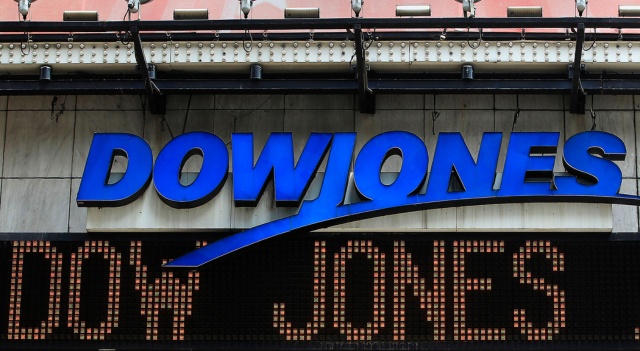U.S. equity futures showed little directional movement Thursday as investors processed rumors of potential trade deals alongside quarterly earnings from major corporations. Alphabet (NASDAQ:GOOGL) reported robust revenue growth led by its search and cloud businesses, while outlining aggressive capital spending plans focused on artificial intelligence. Meanwhile, Tesla (NASDAQ:TSLA) shares dipped after the electric vehicle maker reported weaker-than-expected auto sales, which weighed on its net income. Market participants also await U.S. business activity data and the European Central Bank’s next policy announcement.
Futures Fluctuate Near the Flatline
At 3:35 a.m. ET, Dow futures were down 152 points (-0.3%), S&P 500 futures remained steady, and Nasdaq 100 futures inched higher by 51 points (+0.2%). Wall Street’s main indexes rose sharply Wednesday, with the S&P 500 hitting its 12th record closing high of the year and the Nasdaq Composite surpassing 21,000 for the first time.
Investor optimism was boosted by Financial Times reports that the U.S. and European Union are nearing a trade accord imposing a 15% minimum tariff on imports from the EU. This followed President Donald Trump’s announcement of a trade deal with Japan that also features a 15% levy on imports to the U.S.
Analysts say these developments ease uncertainty surrounding Trump’s tariff policies as the August 1 deadline for new “reciprocal” tariffs approaches.
With about one-quarter of S&P 500 companies having reported Q2 earnings, results have been strong overall: 67% topped revenue estimates and 88% beat earnings forecasts.
Alphabet’s Strong Growth and AI Investment
Alphabet and Tesla dominated Wednesday’s post-market earnings reports. Alphabet’s Q2 revenue jumped 14% year-over-year to a record $96.4 billion, powered by its core search and cloud segments.
However, heavy investment in AI weighed on margins. Alphabet is embedding AI into its search engine to stay competitive with newcomers like OpenAI and Perplexity and is leveraging AI to enhance advertising effectiveness.
Advertising revenue grew 10.4% to $71.3 billion, while search revenue rose 11.7%. The cloud business posted a 32% revenue gain to $13.6 billion.
Investors are watching closely how Alphabet will monetize its significant AI spending, with capital expenditures expected to climb 13% this year to roughly $85 billion, up from $52.5 billion in 2024.
Alphabet shares rose more than 2% after hours.
Tesla Foresees “Rough Quarters” Ahead
Tesla’s focus on automation continues, with hopes that autonomous vehicles and robotics will generate new revenue streams amid declining car demand.
CEO Elon Musk warned of upcoming challenges tied to the expiration of a federal EV tax credit. He told analysts, “I’m not saying we will, but we could — you know, Q4, Q1, maybe Q2, but once you get to autonomy at scale in the second half of next year, certainly by the end of next year, I think I’d be surprised if Tesla’s economics are not very compelling.”
In a Wall Street Journal interview, Musk said Tesla remains in the “early stages” of its self-driving technology ambitions.
Tesla’s revenue fell 12% to $22.5 billion, with net income declining to $1.17 billion from $1.4 billion the previous year. Shares dropped more than 4% in after-hours trading.
Economic Data and ECB Policy Awaited
Markets are poised for the release of preliminary U.S. manufacturing and services PMIs for July. Forecasts call for a slight dip in manufacturing PMI to 52.7 and a small rise in services PMI to 53.0. Numbers above 50 indicate expansion.
Despite tariff uncertainties, the U.S. economy remains resilient, with record stock prices, strong retail sales, and improved consumer sentiment. Inflation fears linked to tariffs have yet to materialize, though analysts caution effects may appear in coming months.
The European Central Bank is expected to keep interest rates steady at 2% in its July 24 meeting. Last month, the ECB cut rates by 25 basis points amid easing inflation and weak eurozone growth but signaled a pause in July due to trade uncertainties.
Erste Group analysts said, “[T]he ECB’s next steps will be heavily influenced by developments in the tariff dispute and its impact on growth expectations.”
The Financial Times also reported that the U.S.-EU trade agreement would impose a 15% tariff on European goods but include exemptions for certain items like spirits and medical devices. However, if no deal is reached by August 1, the EU could impose retaliatory duties worth up to €93 billion.
This content is for informational purposes only and does not constitute financial, investment, or other professional advice. It should not be considered a recommendation to buy or sell any securities or financial instruments. All investments involve risk, including the potential loss of principal. Past performance is not indicative of future results. You should conduct your own research and consult with a qualified financial advisor before making any investment decisions.
